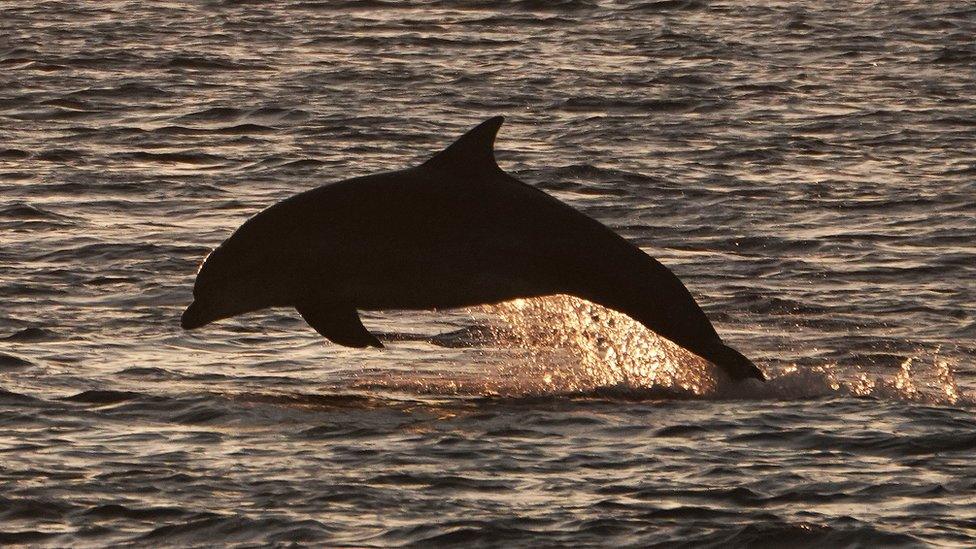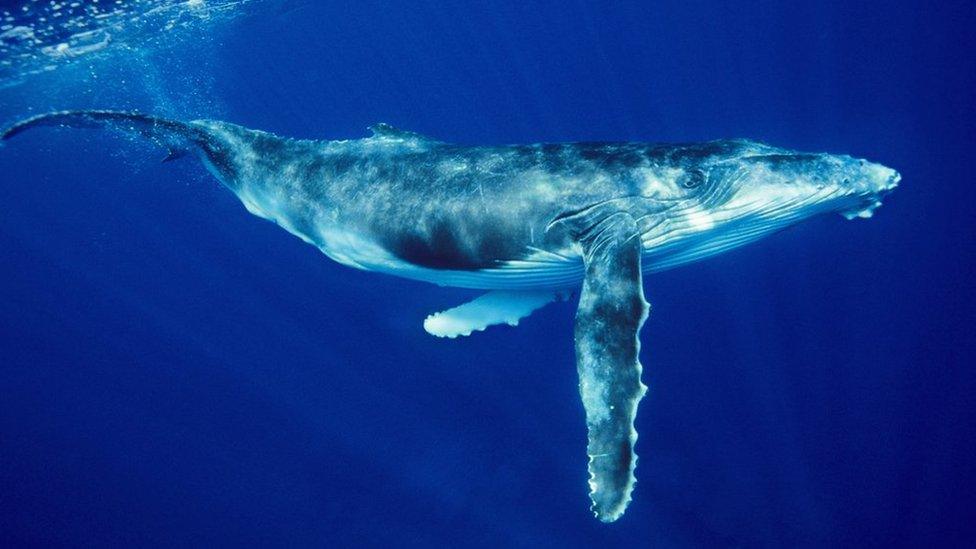Scottish-based team delves into mysteries of blubber
- Published

Cetaceans include dolphins
Scottish-based scientists say new ways need to be found to better understand the health of large marine mammals.
The body condition of cetaceans, assessed by measuring blubber reserves, has been used to gauge how well an animal was doing before it died.
But the team of Inverness and Aberdeen-based scientists said this measurement alone could not provide an accurate picture of health.
They said new health markers need to be developed.
In a review of research, external, they said more information could be gleaned from blubber collected as part of post-mortem examinations of animals that have died after stranding on the UK's coastline.
These cetaceans - whales, dolphins and porpoises - offer scientists some of the best opportunities to study the animals.
The Inverness-based Scottish Marine Animal Stranding Scheme (SMASS), which is part of Scotland's Rural College, worked with University of Aberdeen's School of Biological Sciences on the new review.
They said research had shown blubber to be a complex tissue and "energy store" which is composed of "several layers and regions that have different physiological functions".
But the scientists added there was a "gap in knowledge" about blubber and its link to health and its influence on the animals' behaviour, including reproduction.

Scientists suggest blubber acts more than an "energy store" for whales, dolphins and porpoises
Dr Andrew Brownlow, of SMASS, said understanding animal health had far reaching implications.
He said: "This work is about developing mechanisms for better understanding health in free-ranging cetaceans, of particular importance given the role of these iconic species as sentinels of environmental change and ecosystem viability.
"This is never more important, given the urgent need to understand the impact of multiple stressors, such as underwater noise, chemical pollution and climate change.
"This is not just for the sake of our marine species but, as the coronavirus pandemic has starkly demonstrated, also because human health is inexorably tied to the health and resilience of wild populations."
The scientist added: "However, assessing health in free-ranging cetaceans is difficult - they are fast, mobile and spend most of the time under the ocean, hence that's where the UK's strandings surveillance programmes can play a role."